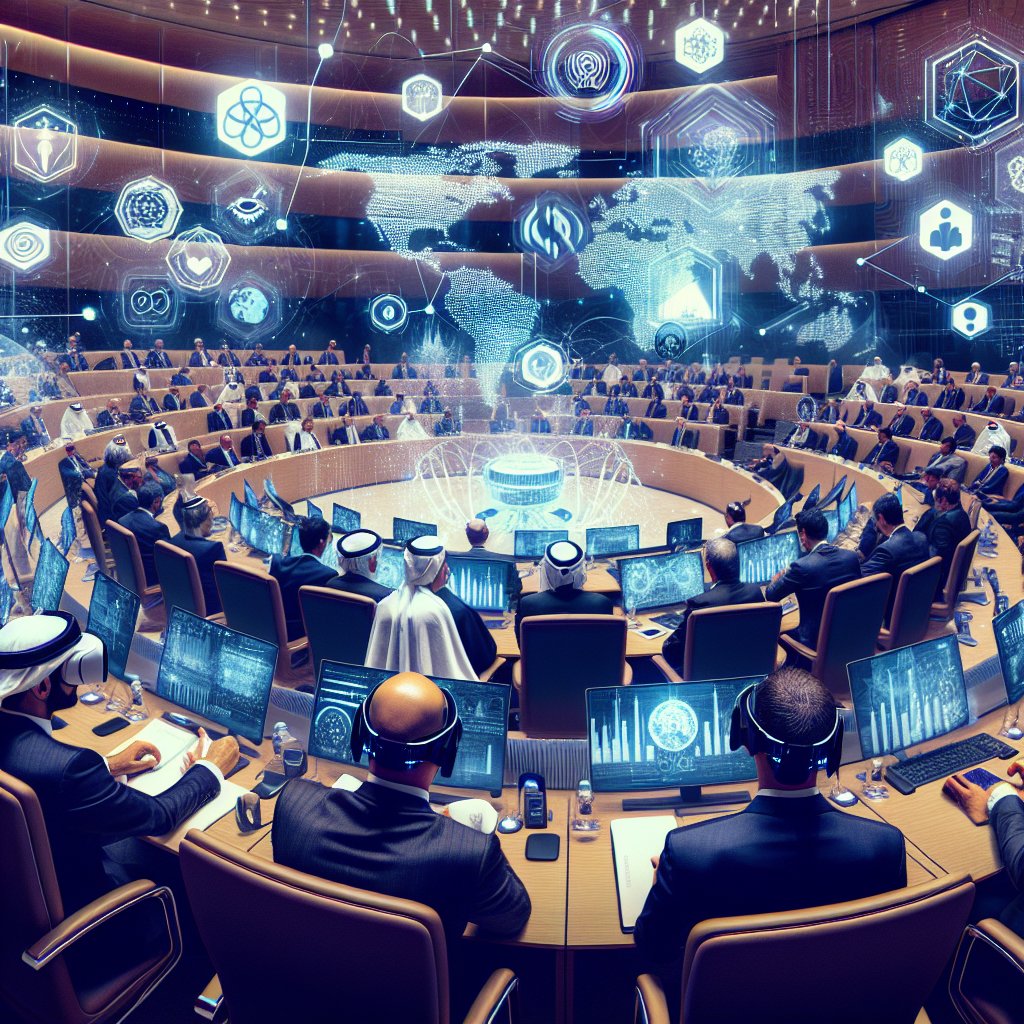Image created by AI
The Rise of AI in Global Conflict Mediation: A New Era of Peace Talks and Challenges
Doha, Qatar - In the historic landscape of international diplomacy, technology is poised to redefine the way we understand, manage, and resolve conflicts. At the forefront of this shift is the burgeoning field of artificial intelligence (AI), offering tools that could augment human capabilities in conflict mediation. At the recent Web Summit held in Doha, Qatar, stakeholders and thought leaders gathered to explore AI's potential role in reshaping peace processes - a topic that has implications for societies worldwide.
This four-day event, which commenced on February 26 and concluded on February 29, served as a platform for discussions about how technology, especially AI, is transforming traditional approaches to solving global disputes. The summit illuminated various AI applications, from augmenting remote communications during the apex of COVID-19 to implementing Geographic Information Systems (GIS) and Virtual Reality (VR) to enhance diplomat's understanding of conflicts.
AI's foray into diplomacy has included tangible examples, such as its use during the Qatar-brokered talks between the US and the Taliban, where remote communication tools were vital. Similarly, Stephanie Williams of the United Nations capitalized on these technologies to reach a wider Libyan population in peace talks towards stabilizing the nation.
However, it's not merely about enhancing communications. VR is proving to be a potent tool for empathy and understanding, as experienced by ambassadors analyzing Colombia's peace process. These advanced technologies are granting diplomats and mediators an unprecedented immersion into the socio-political landscapes they aim to pacify.
Moreover, AI algorithms are rapidly processing data to understand public sentiments, anticipate threats, and map out possible outcomes. This is exemplified by a UN initiative in Uganda, where machine learning was employed to assess radio broadcasts, gleaning new insights into public opinion on various social issues.
Despite the allure of AI's capabilities, there are inherent challenges. The risks of amplifying social biases through flawed data sets and engineering practices are serious concerns. Additionally, the creation of a shared basis of evidence, critical for any successful mediation, is muddied in an era rampant with misinformation and fake content. The need for secure, authenticated, and immutable storage for digital evidence has propelled technologies like blockchain into the conversation, promoting a more decentralized and transparent approach to data integrity.
However, it cannot be ignored that, at its core, diplomacy is driven by human emotion, prejudice, and ideology. Richard Gowan of the International Crisis Group highlights this point, acknowledging the pivotal role the human dimension continues to play in peacemaking despite technological advancements.
The use of AI in conflict mediation marks the beginning of a new chapter in international diplomacy, one filled with promise but also caution. As we continue to delve into the capabilities of AI, it's essential to address these potential pitfalls while harnessing the power of technology to bring about more informed, inclusive, and empathetic resolutions to conflicts that have for too long seemed intractable.










